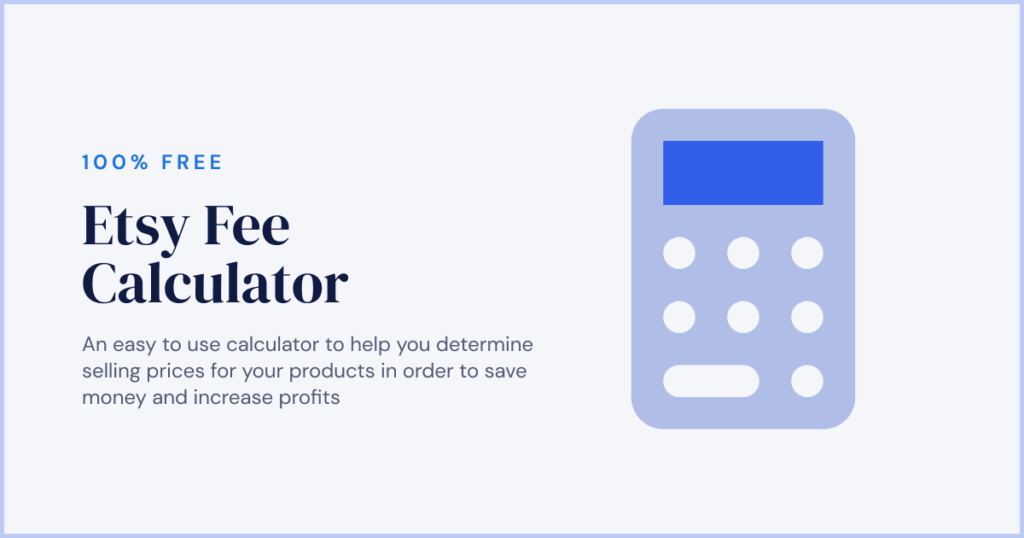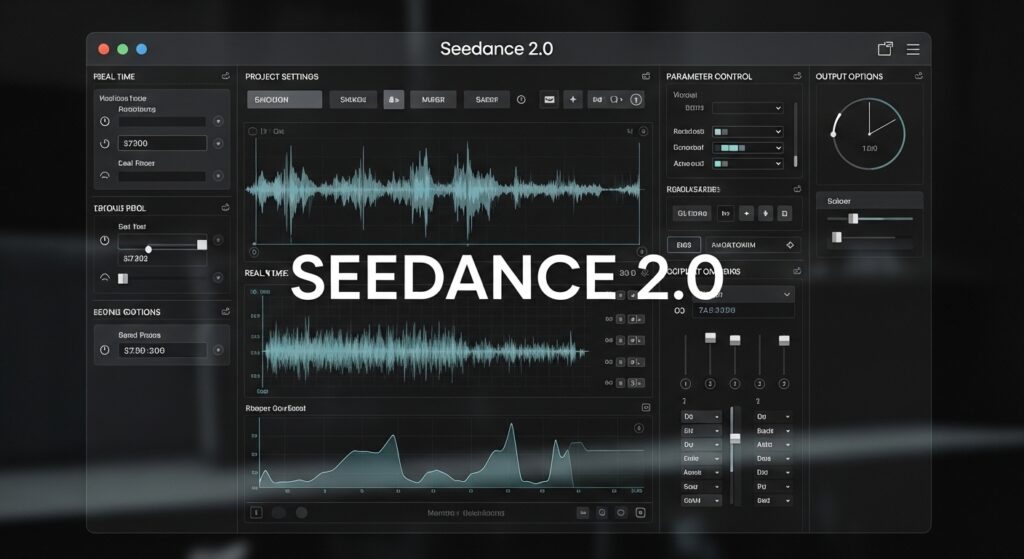Shopify vs Etsy Fee Calculator: Find Your Best Profit Platform
Choosing between Shopify vs Etsy comes down to understanding their fees and how they impact your profits. With various structures, such as Shopify fees and Etsy sale fees, it is essential to compare costs carefully. This guide helps you calculate fees and decide which platform is the best e-commerce platform for your business needs. Are you aware that you can promote your e-commerce product with VidAU AI video generator?
Shopify vs Etsy: Which is cheaper in 2025?
At very low volumes, Etsy is usually cheaper because there’s no monthly plan. It’s just $0.20 listing fee plus a 6.5% transaction fee. As sales scale (e.g., $2,000/month), Shopify Payments rates (2.5–2.9% + $0.30) generally beat Etsy’s percentage-of-sale fees. This Shopify vs Etsy comparison depicts Shopify as more cost-effective overall.
| Platform | Upfront Cost | Listing Fees | Transaction Fees | Processing Fees |
| Shopify | $29/month (Basic plan, annual) | None | None if using Shopify Payments | ~2.9% + $0.30 per sale |
| Etsy | Free to start (Up to $15/month subsequently | $0.20 per listing every 4 months | 6.5% per sale | ~3% + $0.25 per sale |
- Shopify has a fixed monthly cost but no per-listing or additional transaction fees if you use Shopify Payments.
- Etsy is cheaper to start. It needs no subscription, but charges $0.20 per listing, plus 6.5% transaction and ~3% processing fees.
- As your store scales, Shopify becomes more cost-effective. On the other hand, Etsy’s costs grow with each listing and sale.
Etsy vs Shopify: What Are the Key Fee Differences?
In comparing Etsy vs Shopify, Shopify and Etsy have different fee structures that impact your costs. Shopify fee is a monthly subscription plus transaction fees and optional app costs, while Etsy charges an Etsy sales fee, which is per per-sale fee without a monthly subscription. Shipping and fulfilment fees vary by platform and setup.
1. Shopify vs Etsy: Monthly Subscription Costs
Shopify requires a flat monthly fee starting at $39/month for its Basic plan, going up to $399/month depending on your business size. Etsy is free to start but charges $10/month for Etsy Plus. No subscription is required for casual sellers, making it attractive for side hustlers.
2. Transaction & Payment Processing Fees
Shopify charges transaction fees starting around 2.9% + 30¢ per sale if you don’t use Shopify Payments; otherwise, fees are lower or waived. Etsy charges a 6.5% transaction fee on the sale price, plus payment processing fees that vary by country, generally around 3% + 25¢.
3. App & Add-on Costs
Shopify sellers often add apps for email marketing, SEO, reviews, or upselling—costing an extra $10–$200+ monthly. Etsy sellers have fewer customizations but lower third-party tool expenses.
4. Fulfillment & Shipping Integration Fees
Both platforms support fulfillment tools, but Shopify’s integrations (like ShipStation, Printful, or Amazon FBA) typically have monthly costs. Etsy uses calculated shipping but adds a 5% fee on shipping price.
Fee Calculator: Shopify vs Etsy, Monthly Profit on Each Platform
Using the Shopify fee or Etsy sale fee calculator helps you understand your potential Etsy profit by comparing fees and costs on both platforms. By entering your business details, you can estimate monthly fees and see which platform fits your needs better.
Input Your Business Details
To get started, enter key details about your business. This includes:
Product Type and Price
Specify what you sell and at what price. Enter the average price of your product (e.g., $30 for handmade items or $20 for digital prints).
Monthly Sales Volume
Estimate how many items you expect to sell each month on either Shopify or Etsy. This affects the total fees and profit margins.
Additional Operational Costs
Include extra expenses like shipping, packaging, and marketing to get a complete fee overview.
View Your Profitability Results
Once your details are in, the calculator will show:
Total Fees (Shopify vs Etsy)
See a breakdown of Shopify fee vs Etsy sale fee, including monthly subscriptions, payment processing, and shipping.
Net Profit Margin
Subtract total fees and costs from your revenue to see which platform leaves you with more money in your pocket.
Platform Breakeven Threshold
Discover how many items you need to sell each month to cover your expenses and turn a profit on each platform.
Shopify vs Etsy: Which Is The Best Ecommerce Platform Based on Scenario?
Not every business fits the same mould. The right platform depends on what you sell. In this section, we break down real-life seller types to compare Shopify vs Etsy profitability. Looking at fees, ease of use, and scalability helps reveal the best e-commerce platform for each case.
Scenario 1: Handmade Jewelry Seller
A small business selling handcrafted rings and earrings might find Etsy more profitable initially. This is because of its low barrier to entry. However, as sales grow, Shopify’s scalable tools can offer better margins.
Scenario 2: Print-on-Demand T-Shirt Brand
Shopify is ideal for print-on-demand brands that want full control over design, automation, and customer experience. Shopify Plus or standard Shopify plans offer integrations for print services and fewer restrictions. Etsy, while useful for early exposure, takes a fee from every sale, which adds up quickly at scale.
Scenario 3: Digital Product Creator
For digital products, Etsy is ideal for instant exposure, but Shopify wins on automation and ownership. You avoid Etsy sale fee stacking and get full control of delivery and licensing tools.
Before Choosing Shopify Fee Or Etsy Sale Fee

Beyond basic platform fees, there are hidden costs and trade-offs that impact your bottom line. Comparing Etsy vs Shopify means thinking beyond transactions. It focuses on ownership, speed, and long-term flexibility.
Shopify vs Etsy: Time to Market
Etsy lets you start selling fast. Just list a product and go. Shopify takes longer to set up, but gives you total design and branding freedom. If speed matters more than customization, Etsy wins.
Brand Ownership & Customer Data
On Etsy, customers belong to the platform, not you. Shopify gives you full access to customer data. It lets you build email lists, remarketing campaigns, and loyalty programs. That kind of control helps increase profits over time.
Payment Delays and Payout Cycles
Etsy’s payout cycle may delay when you receive your funds. Shopify Payments generally deposits faster, helping with cash flow. This matters for sellers managing inventory and ad spend.
Cost of Scaling Over Time
Etsy’s fees grow with your volume. The more you sell, the more you pay. Shopify’s pricing stays mostly fixed, so growth doesn’t eat as much into your profits. For long-term scaling, Shopify is the best ecommerce platform.
Shopify vs Etsy: Pros and Cons Table
To help you quickly compare, here’s a simple breakdown of the advantages and drawbacks of each platform. If you’re deciding between Etsy vs Shopify, use this to weigh what matters most to your business.
| Feature | Shopify | Etsy |
| Startup Time | Takes longer to set up | Ready to sell almost instantly |
| Design Control | Full customization with themes and apps | Limited to Etsy’s layout |
| Customer Ownership | You control the data, emails, and experience | Etsy owns the customer data |
| Fees | Monthly Shopify fee, plus transaction fees | No monthly fee, but higher Etsy sale fees and listing charges |
| Scalability | Built for growth; pricing stays consistent | Costs rise as sales increase |
| Marketing Flexibility | Integrate with email, video ads, and SEO tools easily | Limited to Etsy’s internal search and promo options |
| Brand Building | Strong platform for long-term brand identity | Brand is often hidden under Etsy’s storefront |
| Best For | Print-on-demand, dropshipping, scaling businesses | Handmade crafters, hobby sellers, small-batch creators |
Conclusion | Shopify vs Etsy
When weighing Shopify vs Etsy, the best choice depends on your business goals. Etsy is easier to start with and suits handmade sellers, but its sale fees can add up. Shopify involves a monthly Shopify fee, yet it offers more control. It gives branding freedom and long-term growth potential. Use a fee calculator to compare costs and profits clearly. This helps you decide which platform is truly the best ecommerce platform for your business.
FAQs
1. What are the main fee differences between Etsy and Shopify?
Etsy charges listing fees and a higher sale fee, while Shopify requires a monthly subscription plus transaction fees. Overall, Shopify becomes more cost-effective at scale.
2. Which is cheaper for beginners, Etsy or Shopify?
Etsy is cheaper upfront because there’s no monthly Shopify fee. But Shopify can be more profitable in the long run for growing businesses.
3. Can I sell on both platforms?
Yes! Many sellers use Etsy to reach a marketplace audience and Shopify to build a branded store.
4. How do Etsy sale fees work?
Etsy takes a percentage of each sale, plus listing and payment processing fees. These can add up quickly for higher-volume sellers.
5. Which is the best ecommerce platform for brand building?
The best ecommerce platform depends on you. Check if you want full branding, data access, and marketing flexibility.
6. Shopify vs Etsy fees
Shopify has fixed fees,and Etsy charges per sale.
7. Shopify vs Etsy Reddit
Reddit says Etsy is cheaper, Shopify scales better.
8. Shopify vs Etsy digital products
Etsy is easy for printables, and Shopify offers flexibility.
9. Shopify vs Etsy vs Squarespace
Etsy suits handmade, Shopify scales, Squarespace designs.
10. Shopify vs Etsy vs Wix
Wix is simple, Etsy is niche, Shopify is scalable.
11. Shopify vs Etsy vs Amazon
Amazon has reach, Etsy is niche, Shopify gives control.
12. Shopify vs Etsy print on demand
Shopify integrates POD apps, and Etsy has built-in demand.13. Shopify vs Etsy for beginners
Etsy is cheap to start, and Shopify grows long-term.





